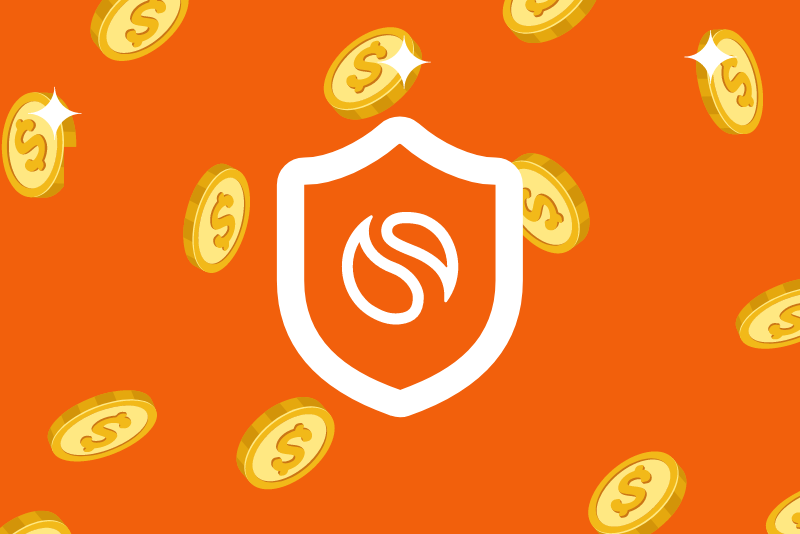What will the legal system look like after COVID-19?
.svg)
Written by
Patrick Davis
|
April 6, 2021
If you are like many lawyers, paralegals, judges, and other legal professionals, you’ve searched at least once for the following terms in light of the coronavirus pandemic:
- Future of the legal system
- Future of law firms
- Future of courts
- When will courts open up again?
- When can lawyers practice again?
Of course many of us don’t deal well with uncertainty, but in the legal profession it can be downright maddening to know so few concrete facts for the immediate and long term future of our industry.
From F2F to SaaS
Indeed, the US legal system currently operates on an “in-person,” or face-to-face (F2F) basis; and this will certainly change as a result of COVID-19.
The biggest disruption to date has been the closure of courts and court proceedings in all but the most essential cases.
The COVID-19 disruption has had a major impact on courthouse activities and personnel, and the urgent response to the pandemic rightly consumes most of the attention.
The pandemic and its aftermath, however, will fundamentally change the dispensation of justice. “Justice” may well become accepted as a service (or software as a service, SaaS) that is available electronically, at a distance, and from a professional or team of professionals that you may never meet in person.
If nothing else, e-discovery, e-filing, and virtual appearances (with clients and courts) may become more of the norm, as will the reliance on case management software to keep everything in communication.
Where we are today
Courts, even those within a single state system, are operating independently. There are many online resources for determining what is currently happening with dockets, filings, hearings, and trials. Most states now have a central source for court news; for example in California, Florida, and Illinois.
Federal courts are also responding independently, by district, such as:
Four Federal districts in California:
Three Federal districts in Florida:
Three Federal districts in Illinois:
Each Federal court website has a different and unique format and approach to communicating their COVID-19 news and responses.
State court systems responses are still a mashup of local, regional, and state supreme court directives, often changing several times during a week. The Federal courts are each determining their own approach. The burden on practitioners, their staff, court personnel, and litigants is immense, and the rapid and surprisingly flexible response augur well for the future.
The future
There are many businesses, including Smokeball, providing means and methods to get through the crisis period, but technology responds to demands in this scenario—it does not dictate the future.
The COVID-19 pandemic has put the entire legal industry under the spotlight, and its weaknesses and outdated practices are becoming more evident. Some have adapted with speed and creativity: law schools have gone online, courts are operating with extreme social distancing and online filings, and law firms are meeting with clients and teams with virtual technology.
As helpful as the many technologies are to address the immediate crisis, the culture of the legal community is what the future is really about, and as that culture changes the service of administering justice will certainly follow.
The challenge is to think about what will happen over the long term and how it will impact your practice.
Lawyers need to consider:
- A cohort of new lawyers who did not graduate from, or possibly even attend, a physical law school;
- A potential shortening of the three-year legal curriculum;
- A wave of new bankruptcy cases to be handled by an already over-taxed system;
- A movement toward online courts, where evidence is submitted electronically, hearings are held and testimony is received remotely, and a professional judge decides the case when the file is complete;
- Significant constitutional challenges based on the right to a jury trial, which is guaranteed by two separate provisions of the U.S. Constitution: Article III, section 2 and the Sixth Amendment;
- A massive revision in the Federal Rules of Evidence, and the 50-state ripple effect;
- Robust, trusted online platforms (e.g. Communicate) that link attorneys and paraprofessionals with clients and teams needing their expertise;
- Rapid advances in the use of artificial intelligence, including in intelligent legal research, predictive discovery, and document preparation.
Courts are currently a place, THE place, where justice is dispensed. The system of justice is centered around a building where people, organizations, and businesses “go” for resolution of civil and criminal matters. In the future the courthouse will not be the focus–dispute resolution will become a service, provided by a complex and interdependent web of many disciplines.
Smokeball for law firms of the future
As you contemplate the future of justice without a courthouse, be assured that at Smokeball we are constantly working to anticipate the needs of the evolving and emerging legal culture. All of the features here are included with your Smokeball subscription; if you need additional guidance on any aspect of Smokeball during this unprecedented time, don’t hesitate to reach out to our team.
- Secure e-filing
- Document automation with access to our library of 17,000+ court forms
- A secure chat and file sharing portal, Communicate, that enables you to keep in touch with your colleagues and your clients no matter where you’re working from
- Track your hours effortlessly with Auto:Time
- Insights to help you keep track of what your colleagues are working on
- Billing and invoicing capabilities
While the global situation changes day-by-day, and you rise to the challenges, don’t forget to step back and consider the future. Smokeball is here to help.
Article courtesy of Aline Martin-O’Brien, Masters in Theory and Practice of Procedural Law, University of Paris: Panthéon–Sorbonne, who lives and writes in Florida.
Learn more about Smokeball document management for law firms
Book Your Free Demo
Ready to see how Smokeball client intake software helps you Run Your Best Firm? Schedule your free demo!


.png)

